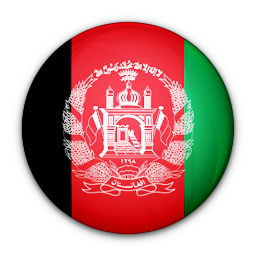On April 3, 2016 repatriation of Afghan refugees across the Pakistan- Afghanistan border restarted, after a break for winter. The process has recently, come under fire by human rights organizations and activists. The Human Rights Watch in a report released earlier in February called it the, “...largest unlawful mass forced return of refugees in recent times.”
The report said the Pakistani government and UNHCR were forcing refugees back to Afghanistan through a series of coercive measures. The police in Pakistan was harassing refugees while UNHCR increased cash support from $200 to $400. Since the report came out though and repatriation restarted, UNHCR has decreased the cash stipend to $200 again, citing lack of financial resources as a reason.
The Pakistani state, military and politicians both, over the last decade have blamed Afghan refugees for the country’s security problems. Refugee camps have been called safe havens for terrorists. After a spate of terrorist attacks throughout the country in the beginning of this year there was a further crackdown on Pakhtun populations throughout the country.
The problem is exacerbated by ethnic tensions within Pakistan as well. "A lot of Pashtun went to Pakistan because western Pakistan is predominantly Pashtun," says Daniel Karrell, a professor of Social Science at NYU Abu Dhabi. "However Pakistan has its own ethnic concerns, and other groups are afraid of a unified Pashtunistan – they don’t want western Pakistan to unite with Afghan Pashtun areas."
"In Pakistan there’s certainly a sense that they can’t host these refugees forever. Politically in Pakistan a lot of people blame Afghans for problems, for terrorism," Karrell explains. "When there was an official war going on in Afghanistan, it was very bad optics for Pakistan to send back refugees. Now that the war is 'over' – even though it is absolutely not – Pakistan is thinking 'now we can get rid of these refugees who cause all these problems.'"
Many of these internal concerns can be traced back to the arbitrary way in which British colonial rulers demarcated the border between their sphere of influence and independent Afghanistan.
"A lot of Afghans consider the border between the two countries, the Durand Line, to be artificial," Karrell concludes. "If you’re one side of the border, you’re in Pakistan, which has its own problems, but at least never got invaded by Russia, whereas your cousin on the other side of the border is in this country that has been war-torn for 40 years."
Duniya Aslam Khan, Public Information Officer for UNHCR Islamabad said repatriation of Afghan refugees was part of a tripartite agreement between the Afghan government, UNHCR and the Pakistan government. She said local integration was not an option the Pakistani government was interested in, so repatriation is the only permanent solution available to Afghan refugees in Pakistan now.
“All refugees who came in 2001, after US strikes went back in 2005,” says Khan adding that Afghans generally also often go over the border, visiting their home town for summer vacations or meet relatives there. “Then technically they are not refugees but economic migrants,” she said.
Conditions at the Pakistan-Afghanistan border have also changed, reflecting government policy towards Afghan refugees. Last year in June the government imposed more checks on the border in a bid to make it more secure. Khan says earlier there were no paper requirements for people crossing the border but recently the government asked for a passport and visa from the people coming in.
Since 2002, the Tripartite agreement was the only policy dictating treatment of Afghan refugees in Pakistan. All measures taken by UNHCR and the Pakistani government the census, proof of registration cards, repatriation and expiration date of proof of registration cards were all dictated by the policy. The absence of a dedicated law for refugees though did put them in limbo.
“Legally there was a vacuum,” says Khan saying that while there was no law saying that refugees could not work in the country, there was also no law explicitly allowing them to work making them more vulnerable. They have been barred from government jobs.
In February, this year the government passed a policy titled ‘Management and Repatriation of Afghan Refugees.’ This is the first policy the Pakistani government has introduced for the refugees.
Fehmina Toufiq, at the Ministry of State and Frontier Regions, said the policy extends the validity of the Proof of registration cards till the end of 2017. She said the government was also working on introducing a flexible visa regime for Afghans who wanted to stay in the country. “We have earned the goodwill of the international community and want continue to introduce a National refugee law,” she said.
At the same time Toufiq confirmed that they were imposing a more strict control on the border areas, only allowing people with proper travel documents to travel into the country.
